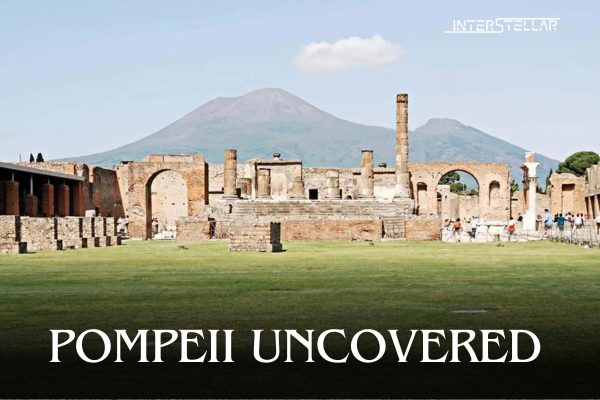Archaeologists Uncover More Victims of Pompeii’s Catastrophic Eruption
Archaeologists working in the ancient Roman city of Pompeii have unearthed the remains of two more victims from the devastating volcanic eruption that occurred almost 2,000 years ago. This discovery was announced on Monday by the Pompeii archaeological site.
Remains Found in a Makeshift Bedroom
The skeletal remains of a man and a woman were located in a small, improvised bedroom within a villa. This villa was under reconstruction when Mount Vesuvius erupted in AD 79. According to the site’s statement, the woman was found lying on a bed, surrounded by gold, silver, and bronze coins, as well as jewellery, including gold and pearl earrings. The man was discovered lying at the foot of the bed.
Mount Vesuvius: The Destroyer of Pompeii
Pompeii, once a thriving city located near Naples, along with its surrounding countryside, was submerged under volcanic ash when Mount Vesuvius violently erupted. The explosion caused the death of thousands of Romans, who were unaware of the danger posed by one of Europe’s largest volcanoes. The eruption buried the city under a thick layer of ash, preserving many of its buildings and the remains of its inhabitants.
The latest victims discovered appeared to have sought refuge in the small room, hoping to survive the rain of rock fragments that had blocked their exit. However, they were ultimately buried under the flow of lava and other scorching materials from the volcano.
Insights into Ancient Pompeian Life
The opportunity to analyse the remains of these two victims offers a wealth of invaluable anthropological data, according to Gabriel Zuchtriegel, the director of the archaeological site. This data is expected to shed light on the daily life of ancient Pompeians, offering a deeper understanding of their culture and habits.
Ongoing Archaeological Efforts in Pompeii
Pompeii, which was rediscovered in the 16th century, has become the focus of increased archaeological activity in recent years. These efforts aim to preserve the site, which has suffered from decades of decay and neglect. The discovery of these new remains highlights the ongoing significance of Pompeii as a source of historical insight and a testament to the destructive power of nature.





